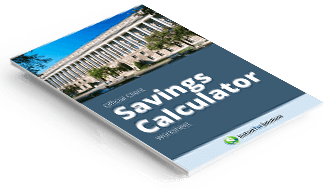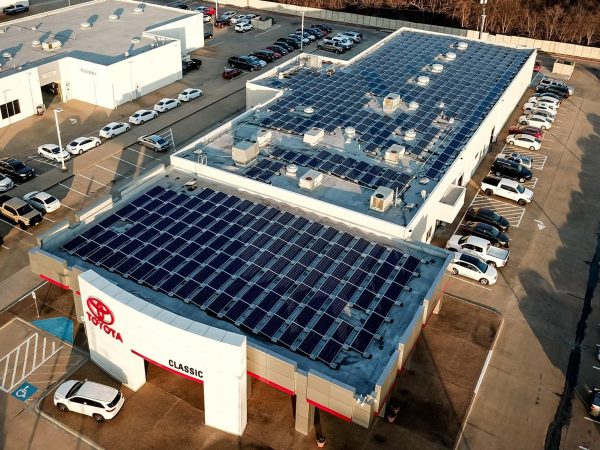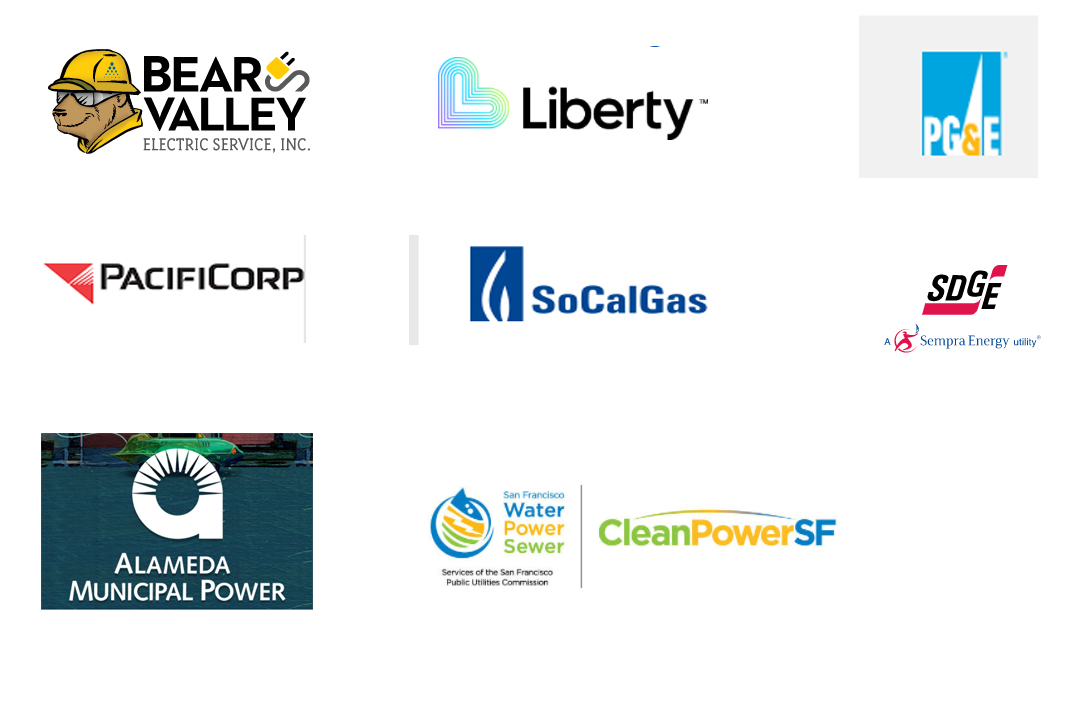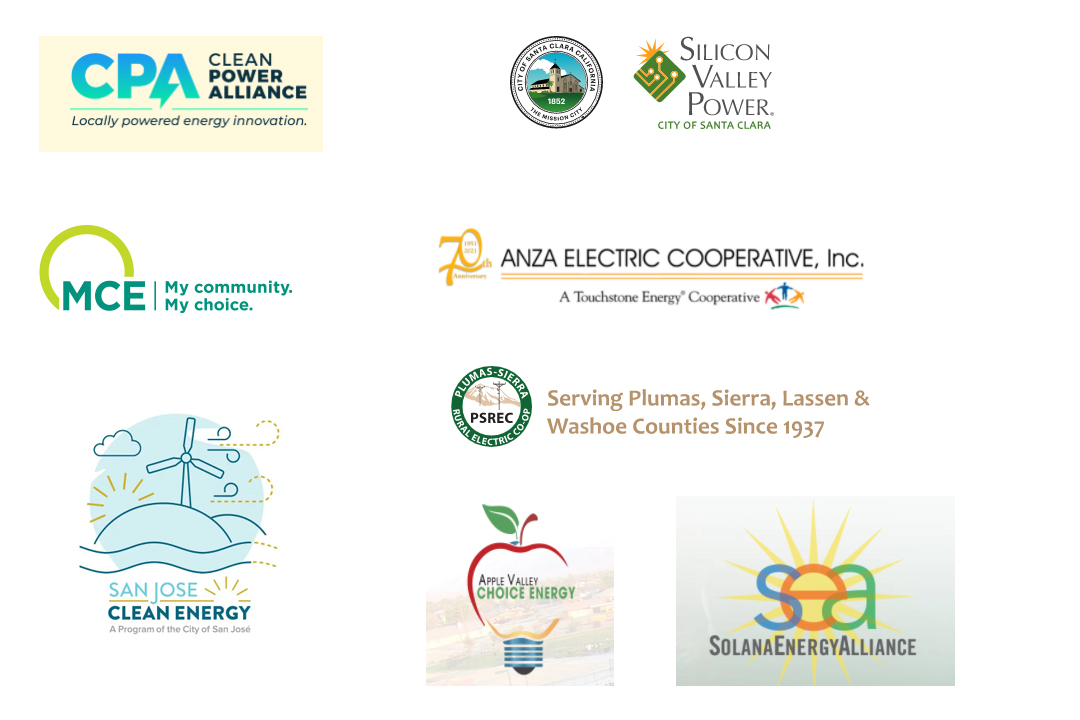
Find Out What Commercial Solar Panel Programs Your Business Qualifies For Now!
Proprietary Energy Savings Program
Looking for a sensible way to reduce operating costs? We’ve eliminated all the barriers for businesses to go solar. We’ve installed over 10 megawatts of solar from Fortune 500 facilities manufacturing to private label packaging corporations. Speak with our team today for a free savings proposal.
Proprietary Energy Savings Program for Georgia Businesses
Looking for commercial solar panels? Are you a GA business with high energy costs and tax liability? If so you’ve found the right place. Without any upfront investment, businesses are able to adopt solar and begin saving money as soon as the system is installed and becomes operational. We’ve developed a program that allows U.S. businesses to install solar and pay off the system overtime using your federal and state subsidies.
Your company has no risk.
Solar One will operate, insure, and maintain the system while the dealership owns the system outright and reaps the benefits of sun for decades to come.
Whether you go solar or not you’re going to purchase power either way.
Solar is no longer a matter of interest, it’s a matter of choice!
Solar For Business
#1 Georgia Commercial Solar Company
If you’ve never explored a solar project for your business or you’ve looked at numerous solar proposals that involved a substantial up front cost, taking out a long term loan, or required a 3rd party owning your solar array and keeps most of the benefits, this message is for you.
After months of meetings with decisions makers and hearing each of the reasons why businesses choose not to implement a solar project, Solar One developed a solution that removes all of the pain points and all of the barriers to commercial solar ownership.
Regardless of what state your facilities are located, your company will enjoy the following benefits…..
Your company’s project will be 100% paid for by incentives.
There’s no ROI to calculate and wait for— because the savings are immediate and there are no out of pocket costs either. From the first month your solar array goes live, you will see a substantial reduction in your operating expenses due to electricity savings.
There are no cap x budget requirements from your company, and there are no construction payments.
You won’t be required to share 80% of the benefits with a 3rd party ownership, as you would with a Power Purchase Agreement, PPA or lease. In other words— your company will actually own the solar array.
Once you receive a proposal from Solar One, you won’t be asking if going solar makes sense or not—you’ll be asking Solar One to put solar panels on your entire portfolio of properties.
Whether you have 10,000 or 10 million square feet of roof top space, whether your family owned or fortune 500, we’d like to have a conversation with you in order to learn more about your business.
Please check the information below and connect with us. We look forward to speaking with you soon.
Solar One has constructed over 40 Commercial Solar Projects in different parts of the country, ranging from school districts, to retail, manufacturing, multi-family and other commercial properties. Many of our customers have had us do 3, 4, 5, 6 different properties. We have dozens of additional projects currently under contract. Our Director is based in Conyers, GA and is available for in person meetings.
For conservative purposes these are the numbers in Georgia
50,000 square foot roof top = $1 million in savings over 25 years
100,000 square foot roof = $2 million in savings over 25 years
1.333 = production factor in Illinois for example (if at 180 degree tilt)
1.333 x 700 kw = annual kWh (kilowatt-hour) produce in year = 933
A kilowatt hour is when you add in your supply delivery, taxes, conservatively worth $0.08 = 1 kWh
Supply rate on average = 5.5
Take $0.08 x 933 (annual kwH produced in a year)
= ~$70,000/year in savings
Which = $6,000/month in electricity savings
Or ~$2 million in savings over 25 year warrantied life.
Solar Panel Building
The larger your commercial facility the higher it utility costs. Georgia has moderately low electric rates compared to the other U.S, but by no means is the cheapest. The average cost of electricity in Georgia is 12.26 ¢/kWh. By producing your own energy via the sun, you can offset these costs considerably. On average our clients with roofs over 100,000 square feet are saving six figures in annual operating expenses with zero upfront expense. This results in immediate ROI and cash flow since we front load federal and state subsidies to pay for the solar system spread out over 25 years instead of a requiring large cap ex or loan only to wait 5-7 years for an ROI. Solar power for commercial use has historically been an investment requiring capital expenditure, taking out a loan, or sharing the tax benefits with a 3rd party through a PPA, but this is no longer the case with Solar One.
Why Georgia Needs Commercial Solar
Tax credits and rebates are very attractive for going solar in Georgia. Many of the nation’s top household brands are based in Atlanta. We work with manufacturing, packaging, food, distribution, retail, warehouses, hospitals, hotels, resorts, casinos apartment complexes, cold storage, electronics, defense, aerospace and much more. Own your solar panels for commercial buildings without having to take a loan, or a Power Purchase Agreement. Leverage your tax liability to pay for the system upfront through our proprietary energy savings program. Contact us today for a free consolation and savings proposal.

Solar One Georgia
Atlanta, GA 30324
(404) 390-2099
Mon-Fri 9:00am – 5:00pm
Serving the Georgia Community
We support all the activities of the Georgia state that ensures residents a happy and sustainable energy living.
GA Electric Utilities
- Georgia Power
- Municipal Electric Authority of Georgia (MEAG Power)
- Oglethorpe Power
- BSDK Power
- Tennessee Valley Authority
- Altamaha EMC
- Amicalola EMC
- Abla espanol Electric
- Blue Ridge Mountain EMC
- Canoochee EMC
- Carroll EMC
- Central Georgia EMC
- Coastal Electric Cooperative
- Cobb EMC
- Colquitt EMC
- Coweta-Fayette EMC
- Diverse Power Inc.
- Diverse Power Inc. – Pataula District
- Excelsior EMC
- Flint Energies
- Grady EMC
- GreyStone Power Corp.
- Habersham EMC
- Hart EMC
- Irwin EMC
- Jackson EMC
- Jefferson Energy Cooperative
- Little Ocmulgee EMC
- Marietta Power
- Middle Georgia EMC
- Mitchell EMC
- North Georgia EMC
- Ocmulgee EMC
- Oconee EMC
- Okefenoke REMC
- Planters EMC
- Rayle EMC
- Satilla REMC
- Sawnee EMC
- Slash Pine EMC
- Snapping Shoals EMC
- Southern Rivers Energy
- Sumter EMC
- Three Notch EMC
- Tri-County EMC
- Tri-State EMC
- Upson EMC
- Walton EMC
- Washington EMC
- Direct Energy


Some of Our Clients

Learn more about our zero cap ex energy savings program for large scale commercial businesses. (404) 390-2099
Our Team
Other Information |
|
| Areas Serving: | Appling County, Athens-Clarke County, Atkinson County, Augusta-Richmond County, Bacon County, Baker County, Baldwin County, Banks County, Barrow County, Bartow County, Ben Hill County, Berrien County, Bibb County, Bleckley County, Brantley County, Brooks County, Bryan County, Bulloch County, Burke County, Butts County, Calhoun County, Camden County, Candler County, Carroll County, Catoosa County, Charlton County, Chatham County, Chattahoochee County, Chattooga County, Cherokee County, Clarke County, Clay County, Clayton County, Clinch County, Cobb County, Coffee County, Colquitt County, Columbia County, Columbus-Muscogee County, Cook County, Coweta County, Crawford County, Crisp County, Dade County, Dawson County, Decatur County, DeKalb County, Dodge County, Dooly County, Dougherty County, Douglas County, Early County, Echols County, Effingham County, Elbert County, Emanuel County, Evans County, Fannin County, Fayette County, Floyd County, Forsyth County, Franklin County, Fulton County, Gilmer County, Glascock County, Glynn County, Gordon County, Grady County, Greene County, Gwinnett County, Habersham County, Hall County, Hancock County, Haralson County, Harris County, Hart County, Heard County, Henry County, Houston County, Irwin County, Jackson County, Jasper County, Jeff Davis County, Jefferson County, Jenkins County, Johnson County, Jones County, Lamar County, Lanier County, Laurens County, Lee County, Liberty County, Lincoln County, Long County, Lowndes County, Lumpkin County, Macon County, Madison County, Marion County, McDuffie County, McIntosh County, Meriwether County, Miller County, Mitchell County, Monroe County, Montgomery County, Morgan County, Murray County, Muscogee County, Newton County, Oconee County, Oglethorpe County, Paulding County, Peach County, Pickens County, Pierce County, Pike County, Polk County, Pulaski County, Putnam County, Quitman County, Rabun County, Randolph County, Richmond County, Rockdale County, Schley County, Screven County, Seminole County, Spalding County, Stephens County, Stewart County, Sumter County, Talbot County, Taliaferro County, Tattnall County, Taylor County, Telfair County, Terrell County, Thomas County, Tift County, Toombs County, Towns County, Treutlen County, Troup County, Turner County, Twiggs County, Union County, Upson County, Walker County, Walton County, Ware County, Warren County, Washington County, Wayne County, Webster County, Wheeler County, White County, Whitfield County, Wilcox County, Wilkes County, Wilkinson County, Worth County |
|---|---|
| Services | Commercial Solar Installation Proprietary Energy Savings Program Used by Fortune 500 Corps Leverage the Federal ITC to Pay for Your Solar System Solar for Manufacturing, Packaging Immediate ROI Battery Storage OptionsCurious About Solar for You Business? Give us a call. |
| Company Logo: | |
Frequently Asked Questions
Why Go Solar for Commercial Properties ?
Energy Independence
Be prepared with a building battery backup system. Free yourself from utility policy changes and protect your property when the grid goes down.
Increase Building Value
Installing solar panels increase the value of your commercial property. Get more when you plan to sell your property.
What are the key aspects of solar for my commercial property?
Net Energy Metering (NEM) – NEM is a policy that allows you to generate and receive energy to and from the grid through your electrical meter. Unfortunately Georgia Power has capped its allocation of net metering users. The policy remains to be seen how it proceeds.
Grid Connection – After you go solar, you will still be connected to the utility’s grid. This is so you can take advantage of NEM to maximize the value of your system. Essentially the grid functions as a bank storing your energy from your solar panels until you are ready to use it. With a battery backup system and secure power supply, you can use the energy from your system when the grid goes down.
Energy Credits – When you don’t use all the energy your system produces during a day, that energy will “roll” over to the next day and so forth. This happens day after day, month after month, but not year after year. This allows you to use all the energy you produce with your solar system. If you have higher usage months (AC, guests, holidays, etc) you draw from the extra energy credits you earned earlier in the year.
Yearly Settlement – Once a year you “square up” with your utility company. It’s where you settle the balance on your energy credit over the past year. If you are consuming more than you produce, you will pay the utility company for the excess energy you pulled from the grid. If you are producing more energy than you consume, the utility company will pay you for the excess energy at a sub-retail rate.
How Does Solar Energy Work?
1. Your photovoltaic (PV) Solar Panels convert sunlight to DC electricity.
2. Your Inverter converts DC (Direct Current) electricity to AC (alternating current).
3. Generated PV electricity converted to AC is used to power your building or commercial property.
4. Excess electricity is sent to the grid for a credit, or stored in a battery if you choose to install one in your property.
What are the key pieces of equipment in a solar panel system?
Here are the most important equipment components to the standard solar panel system for your business property.
Commercial Solar Panels – Solar panels are modular components, generally rectangular in shape – approximately 3 ft by 5ft. The panels contain silicon cells that when exposed to sunlight, create a flow of direct current (DC) electricity. Panels will vary in size, electrical output (measured in Watts), efficiency, and even color. Most solar panels today have either a black or silver metallic frame. The cells will usually appear a dark blue or black in the light. Panels can be mounted to a home or building’s roof structure, or installed on a ground-mount racking structure.
Note: When thinking about where to strategically place solar panels on a building’s roof, it’s important to consider the factors that will affect the system’s energy production (measured in kWh). Shade from other buildings and trees should be taken into consideration. In the Northern Hemisphere, facing south generally is the best orientation to obtain maximum output.
Inverters
The inverter is a device that converts (or if we’re being techincal inverts) direct current electricity produced by the PV solar array(s) into distributed alternating current, (AC electricity). There are several different types of inverters a solar installation might employ. String inverters are the simplest, most mature inverter technology. This is where the DC from groups of solar panels linked in series are fed into the inverter. The inverter puts out AC electricity which is then fed to the building’s electrical system. Micro-inverters are small, modular inverters that are installed behind each solar panel in an array (1:1) and effectively contain the AC energy production of each panel so that the reduced production of one panel does not affect the output of the entire solar array.
Racking System
A racking system is how your solar panels are mounted to your home’s roof or ground system (popular for commercial installations). While some racking systems may vary in their appearance or modularity, they exhibit similarities in their form and function. It’s important to make sure your racking system, if roof-mounted, is properly flashed and sealed, to ensure your roof is well-protected against the elements. Areas with high winds or volatile weather require extra-secure racking systems. Roof racking systems vary depending on the type of roof.
Monitoring System
It’s important that every residential solar system has its own monitoring system. This is the application that will allow you to view and measure real-time and historical energy production data for your home. Some monitoring systems display this energy production data via a physical display unit, while others employ an online interface, or both! As “smart” or connected homes become more wide spread, solar installers can provide whole-house energy consumption monitoring. In order to ensure your solar system is producing energy efficiently, it’s important to make sure your solar panels are paired with an energy production monitoring system.



